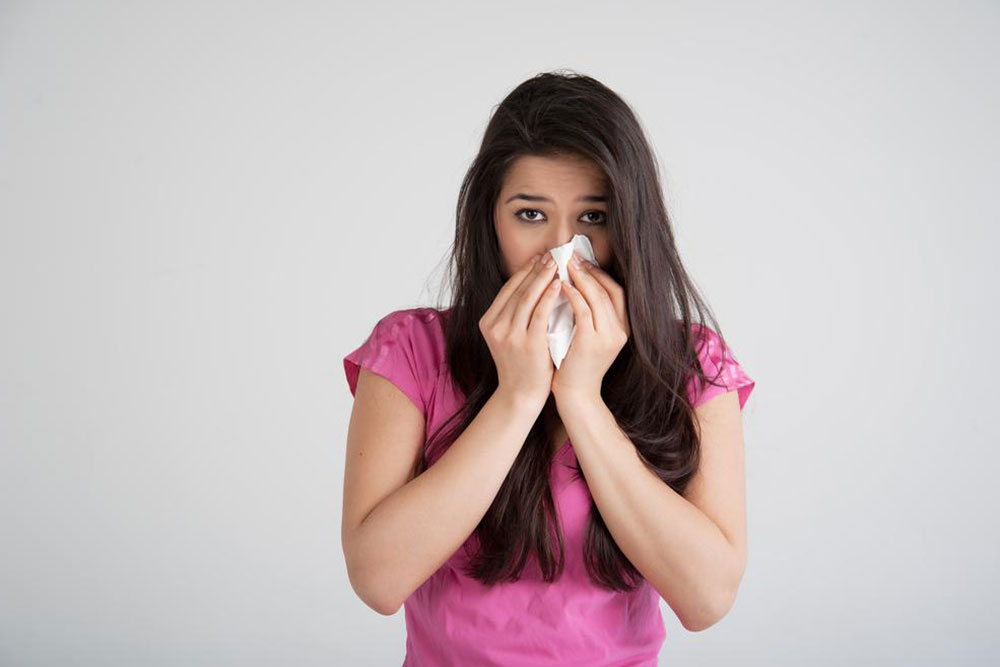Causes and Triggers of Sinus Problems
Sinuses are the area in the forehead just in the center of the eyes and behind the cheekbones. They are hollow air spaces whose primary function is to make mucus. This mucus keeps the inner side of your nose moist, thus protecting you from pollutants, allergies dust, and more. Hence, sinuses are not the cause of any problem.
The problem occurs when you have a cold or any other allergy, and your nose gets swollen. This swelling blocks the sinus passage of your nose, making you feel uncomfortable. You may also find yourself unable to drain the nose. If you have a blockage in the sinus area of your nose, your speech is also affected.

Let’s have a look at some of the common causes and triggers that can lead to sinus problems.
- Viruses
Usually, sinus infections start with a cold. When you have a cold, your nasal tissues gets swollen, blocking the holes that drain the sinuses which leads to breathing difficulties.
In case a virus is the cause of your sinus infection, then antibiotics are not capable of curing it as these medicines only kill bacteria, and not viruses. One should wash their hands regularly and keep themselves away from any sinus-infected person. Most of the times, a decongestant will cure you in four to five days.
Allergies are one of the most common causes of sinus problems. People with a sinus infection can develop allergies, thus leading to aggravated sinusitis. If you are prone to allergies, avoid things that lead to an allergic reaction like dust, cockroaches, and so on.
Prescribed nasal sprays can reduce chronic inflammation in the nasal lining that accompanies an allergy.
In case your sinus infection or cold does not get better in ten to twelve days, you may have a bacterial infection. Bacteria are always present in your body, but they only attack when your resistance is low because of an infection. A decongestant during the beginning of your cold can avoid this situation but if you still develop a bacterial infection, treat it with antibiotics immediately. However, do not take any medications without the recommendation of a doctor.
Nasal polyps are tiny, benign growths which block the nasal air passage. These are one of the common causes of sinus problems. Polyps can lead to the sinus cavities getting blocked, thus preventing the mucus from draining out.
You can treat polyps by using nasal steroids or oral steroids. If they still don’t get cured, the patient may require surgery.
You may develop a sinus infection due to allergens and pollutants in the air. Dust, smoke, air pollution, and even strong perfumes can lead to coughing. When these irritants reach your nose, they can cause sinus problems. Therefore, you must keep away from them as much as possible. Asthma patients should be very cautious regarding these pollutants. One can reduce the pollutants in their home with the help of good air purifiers.
If you get a nasal infection or congestion very quickly, you should avoid spending long hours in a swimming pool. The chlorinated water can trigger a sinus infection and irritate your nasal lining. Diving can also be a cause of worry as a dive can push water into your nose and inflame the nasal tissues.
In air travel, when the air pressure reduces during a flight, it can cause pressure to build up in your ears and head, and this can result in a blockage of your nasal air passages. It can also worsen your cold. This problem happens during takeoffs and landings.
It is best to use an inhaler or nasal drops before your flight takes off to keep your sinuses clear.
Fungi are a rare cause of sinus problems. They primarily attack a person if their immune system is weak. When your immune system is weak, fungi can grow in dark and damp places of your body like your sinuses. Aspergillus is the common fungi linked to sinusitis.
Fungi can be treated with antifungal therapy or scraping of your infected sinus. You may also have to go for surgery for the removal of fungi. You must see a doctor if you have a headache or vision problems for more than a week.
It is recommended to abstain from using nasal products for extended periods as it can lead to your nose becoming less sensitive to their effects. A condition of rebound nasal congestion can also occur in which your nose gets swollen again. If one does not use the nasal decongestants as instructed, it can worsen your symptoms.
You must stop the use of nasal sprays within four to five days, or else you may get excessively dependent on them.
Cystic fibrosis and other disorders are chronic conditions that weaken the immune system which leads to nasal inflammation and the development of thick mucus in the nose.
All the factors mentioned above are some of the common cause of sinus problems which can lead to severe problems like sinusitis. It is best to avoid these triggers as much as possible to prevent any sinus condition. Also, if you experience any symptoms of this problem, it is advisable to seek medical help immediately for timely treatment.

